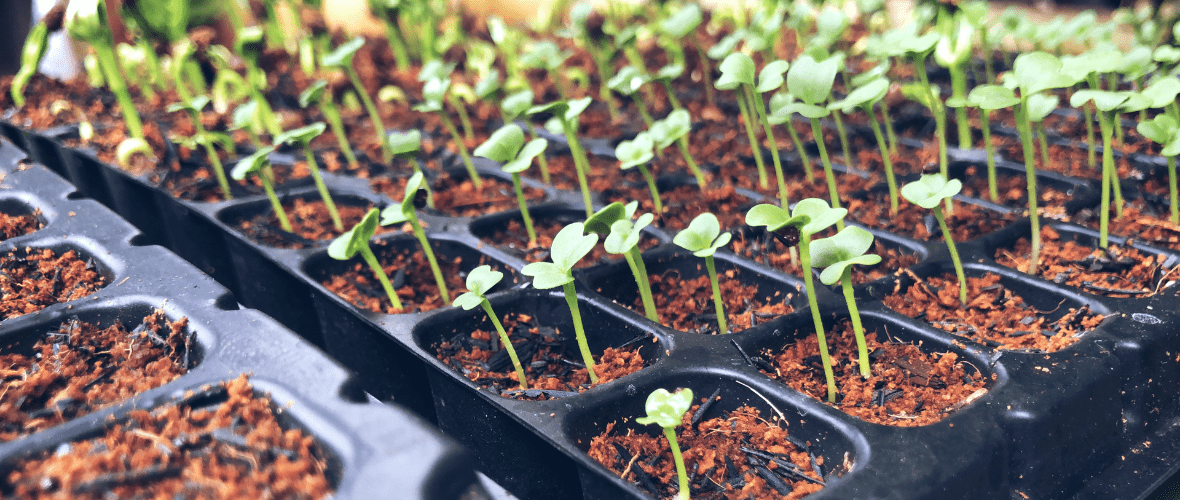
Starting your own vegetable or flower seeds indoors is fun and rewarding. It allows you to have greater control over the growth and development of your plants.
By starting seeds indoors, you can give your plants a head start on the growing season and ensure that they are strong and healthy when it’s time to transplant them outside. Whether you are a seasoned gardener or a beginner just starting out, this guide will provide you with tips and information you should know to get started. From soil, moisture and sowing seeds, to providing the right temperature and light. We will cover all the essential steps to successfully start seeds indoors and grow a thriving garden.
Soil
It is important to have the proper soil to start seeds. The soil should stay light, fluffy and moist but still allow drainage. A blend of peat moss, perlite or vermiculite will give your seeds their best start. Commercial starter mixes are blended to ensure the ideal environment for seeds to germinate. Garden soil should not be used to start seeds as it is not sterile and is too dense for the seeds.
Moisture
Seeds need consistent moisture to germinate. The soil should never be allowed to dry and it should not be too wet either. If the soil is too wet it can cause damping off (root-rot). To maintain a moist environment, cover the tray with a plastic dome. The dome will help to slow evaporation. Use room temperature water for your plants. Watering with a sprayer or mister is recommended so that you do not wash the seeds away. Keep in mind that tap water contains chlorine. Let water sit out for a day before watering to let the chlorine dissipate.
Temperature
Seeds require warmth to germinate. The temperature should be between 18°c -21 °c (65-75°f). Place seeds trays somewhere with consistent heat for best germination success. Heat mats are the best solution to ensure consistent warmth. Starting seeds on a windowsill is possible but not ideal. Windowsills do not provide consistent warmth and can slow the germination of your seeds.
Sowing Seeds
Start with moistened soil. Plant the seeds no deeper than twice the size of the seed. Carefully set the seeds on top of the soil. Lightly place soil on top of the sown seeds to cover them. Cover with a plastic dome and place the tray where it will remain warm.
Light
Warmth and moisture is key to germinate seeds. However once the seeds sprout and have true leaves, light is very important for the growing process. Ideally plants should receive 14-16 hours of light each day. Lighting systems are a good way to make sure that the plants are receiving enough light to be strong and healthy. The light should be set no more than 2 “away from the plants. As the seedlings grow, the light will have to be adjusted. If the plants do not receive the right amount of light they will stretch and become leggy. If you are using a windowsill for light, make sure to turn the trays every day to prevent plants from reaching for the light.
Happy gardening!